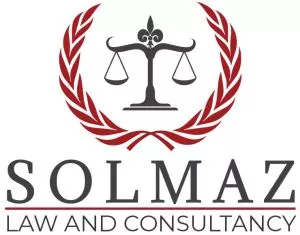- within Corporate/Commercial Law topic(s)
- in Africa
Summary: A limited liability company may incur damages due to the violation of legal obligations by the founders, directors, board members, and liquidators. While the company incurs direct damages due to the limited company incurring damages, the company partners and creditors incur indirect damages. Partnership or the persons who incur damages may apply to those who are liable for the emergence of the damage. In our article, we will analyze the liability for the damages incurred by the limited company and the ways that those who incur damage may apply.
Introduction:
The founders, partners, directors and liquidators of the limited liability company are liable for violating their obligations under the law or the articles of association of the company. Damage compensation may be requested from those who caused the damage. Whether or not the company is in bankruptcy is significant for those who may claim compensation for damage. Besides, the matter to whom the damage will be paid in the lawsuit filed in terms of compensation for the damage is also very important.
1. Liability of Company Managers, Founders and Directors
Concerning article 644 of the Turkish Commercial Code, the liability provisions regarding joint-stock companies are also applied to Limited companies.
As per article 553 of the Law, if the founders, board members, managers and liquidators violate their obligations under the law and articles of association with negligence, they are liable for the damages they caused to the company, shareholders and company creditors.
To mention regarding the liability of managers or directors, there must be negligence involved. Managers or directors must have committed their actions harming the company due to violation of the provisions of the law and the company articles of association. In other words, to talk about harm, unlawful behavior, damage, negligence, and the causal link is essential.
The provision of the article is valid in cases of both direct and indirect damages. Besides, for the provision of this article to be implemented, the company must not be in bankruptcy.
We find it useful to examine direct and indirect damages with regards to the point where shareholders request their losses to be compensated due to the liability of managers or directors. Direct damage is the damage sustained by the company due to the misconduct of directors or managers. Indirect loss can be expressed as the loss incurred by the company's partners and creditors due to the damage incurred by the company. In doctrine, the distinction between direct and indirect damages is made as such. In cases where there is an indirect loss, the assets of the partnership will incur direct damages. In this case, the value of the participation of the partners decreases. The assets of the partnership, to which the creditors can apply for their receivables, will decrease. It, in turn, paves the way for indirect damage to partners and creditors.1
2. Persons who are entitled to demand compensation for damage
The right to demand compensation for the damages as a result of the damage mainly belongs to the partnership. Besides, as stated above, in addition to the partnership, the shareholders and creditors of the company may incur indirect damages. The matters to be understood from articles 555 and 553 of the Turkish Commercial Code are that both the shareholders and the company creditors are entitled to request the compensation for such damage due to the damages incurred by the company. However, the company creditor was given the right to file a lawsuit for compensation only if the company goes bankrupt. However, no such condition was required for shareholders.
ARTICLE 555- (1) The company and each shareholder may request compensation for the damage incurred by the company. Shareholders can only request compensation to be paid to the company
It has been a very appropriate regulation to provide this right to the shareholders and company creditors. This is the opinion in the doctrine. Since the indirect loss of the partners will mean the direct loss of the partnership, it should not be doubted that the partnership may also file a lawsuit for liability. This issue is clearly stated in terms of partnership in TCC 555/1.2
Even if the company has gone bankrupt, the shareholders and creditors of the company are entitled to request compensation. However, in case of bankruptcy, the compensation requests of the shareholders and company creditors are first claimed by the bankruptcy administration. The law first allowed the bankruptcy administration the right to directly assert this right. If the bankruptcy administration does not file a lawsuit due to the damage incurred by the company, the shareholder or company creditor may file this lawsuit.
Company executives who fail to fulfill the duties imposed on them by the law and the articles of association are liable to the partnership, the partners and the partnership creditors for the damages incurred. In the liability lawsuit filed against the managers, the main right of action belongs to the partnership. However, shareholders that incurred damages are also entitled to sue the managers. The actions of the manager in violation of the provisions of the law and the articles of association, which reduce or worsen the assets of the partnership, cause indirect damage to the partners and creditors. Because such disposals affect the partners in proportion to their shares. In other words, direct damage to the partnership will result in indirect damage to the partners (Supreme Court 11th C.C. 2014/18180 E, 2015/2931 D.)
3. Trial Process for Damage
We have stated that the partnership and the shareholders may demand compensation for the damage due to the loss of the limited company, besides, in case the company goes bankrupt, the creditors of the company are entitled to file this lawsuit.
According to TCC 555/1c.2, the shareholders may only request that the damage is paid to the company. Therefore, the shareholder has no right to demand that the damage be paid directly to him/her. In this respect, it is a condition of the lawsuit that the damage is requested to be paid directly to the company.
The loss incurred due to the actions of the director of the company is direct damage to the company and indirect damage to the plaintiff partner, and the compensation to be awarded to the company under Article 555 of the TCC numbered 6102 (309 of the TCC numbered 6762) should be demanded, it is not correct for the plaintiff to request that it is given to him/her, and the case must be rejected just for this reason. (Supreme Court 11th C.C. 2014/11886 E, 2015/536 D.)
Conclusion: Persons who inflict damages to the limited company by violating the liabilities arising from the law or the articles of association have liabilities towards the shareholders and creditors of the company. The persons causing the damage may be company directors, managers, founders, or liquidators. In case of damage, the shareholder and company creditors are given the right to demand compensation for the damage. The right to file a lawsuit for damage given to the creditors of the company is restricted to only when the company goes bankrupt. In case of bankruptcy, it has been determined that this request will first be made by the bankruptcy administration. Additionally, it is required that the damage to be compensated can only be requested to be paid to the company.
Footnotes
1. Wieler, Franz: Die rechtliche Stellung des Geschaftsführers in der 1939, s.88)
2. Sener, Prof.Dr. Oruç Hami. Limited Partnership Law in the Light of the Supreme Court Decisions, 216 p.
The content of this article is intended to provide a general guide to the subject matter. Specialist advice should be sought about your specific circumstances.


